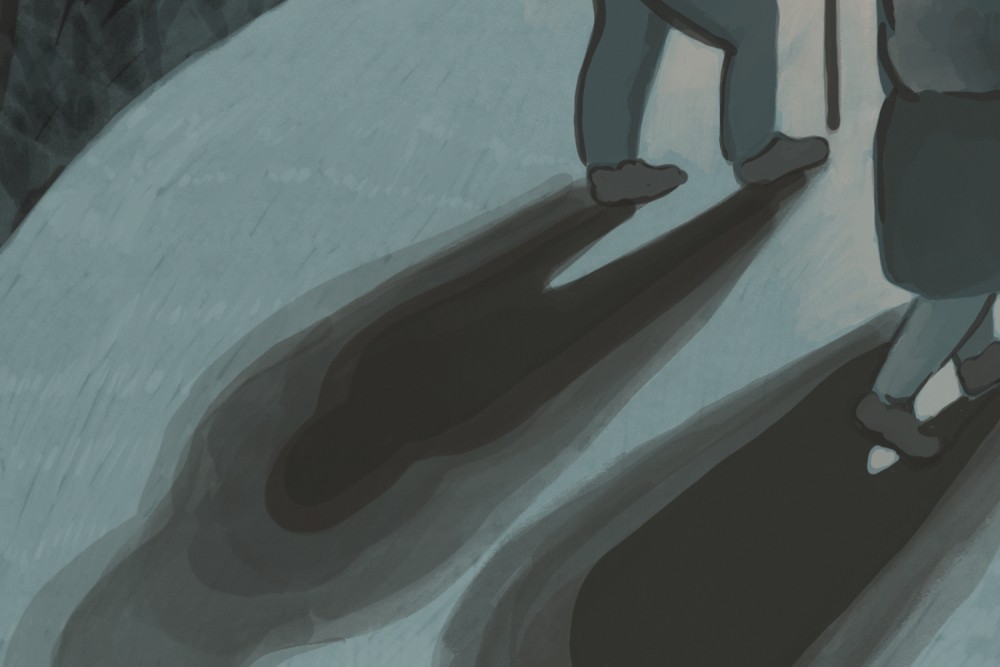Each of my dyings
I’m in a stage of life where I find myself praying the same prayer again and again.

(Illustration by Martha Park)
The Anima Christi is said to have been a favorite prayer of St. Ignatius of Loyola. In it, Jesus is asked to “call” and “bid me come” when the hour of death draws near. In a contemporary reworking of the prayer, David Fleming makes a more expansive supplication: “On each of my dyings shed your light and your love.”
I prefer Fleming’s version. Of course I hope that I will know Christ’s intimate presence on my deathbed. But in the life I live now, I hunger for so much more. I need God to attend and enliven each of my dyings—and there are many. So many endings before the Ending, so many farewells before the Farewell. On every dream, hope, wound, or wondering that needs to die within me, oh Lord, shed your light and your love.
I’m praying this prayer often these days. My father has dementia and is slowly becoming a person I don’t recognize. My mother is a stroke survivor who has lost her hearing and much of her mental acuity. My parents are very much alive; I can sit next to them and hold their hands. I can listen to Dad’s preacherly voice and smell the rose-scented lotion on Mom’s skin. I am not, at this moment, facing an hour of death. But I am dwelling in the land of many dyings. I’ve started keeping track of them, because I want to notice any glimmer of light or love God chooses to send to these gravesides.





